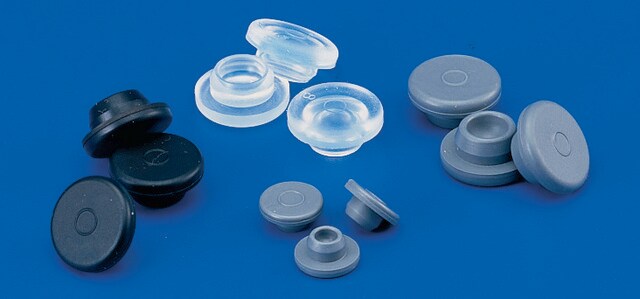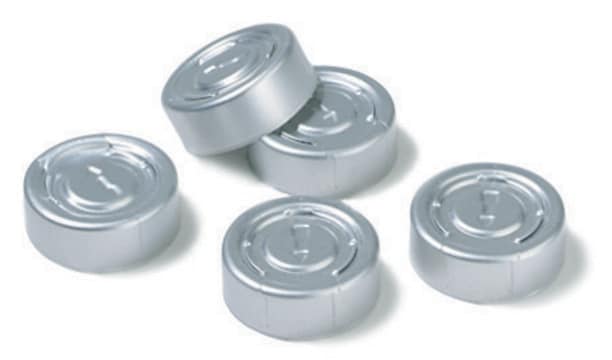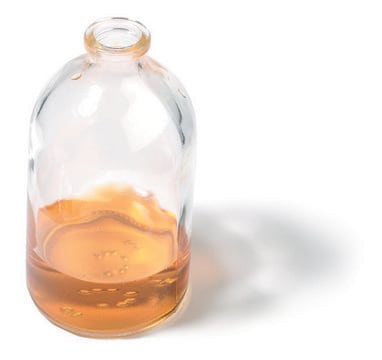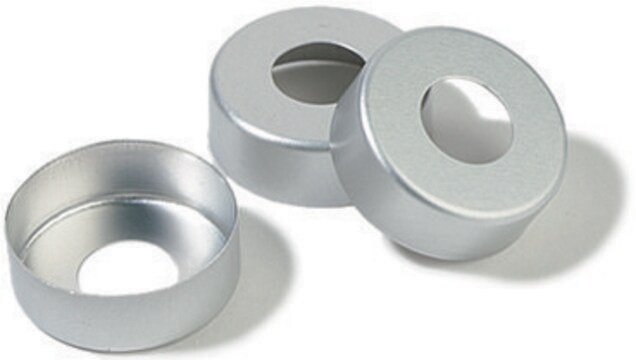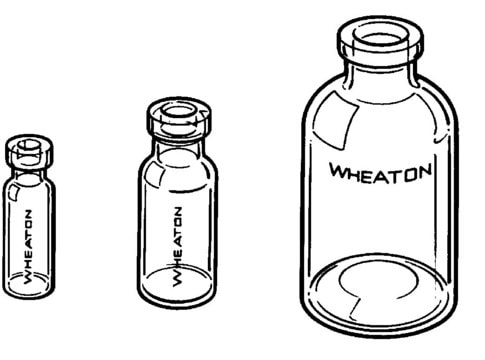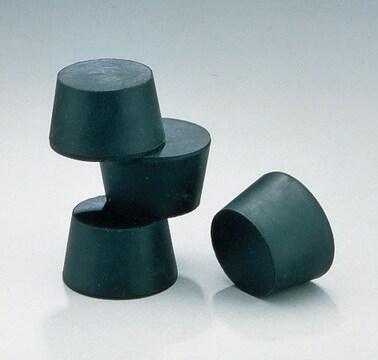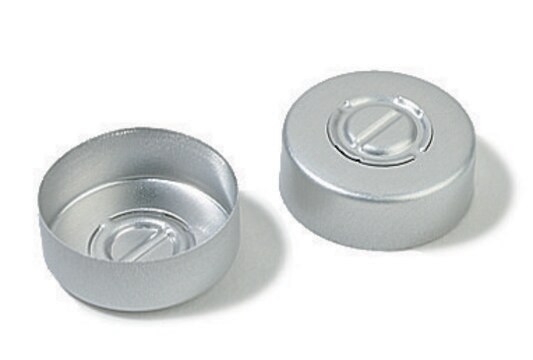27232
Stoppers
stopper diam. 20 mm, gray butyl rubber, pkg of 100 ea
Synonym(s):
PK100 20MM BUTYL SEPTA
Sign Into View Organizational & Contract Pricing
All Photos(1)
About This Item
UNSPSC Code:
41122001
Recommended Products
material
gray butyl rubber
packaging
pkg of 100 ea
O.D.
20 mm
stopper diam.
20 mm
Looking for similar products? Visit Product Comparison Guide
Related Categories
General description
Gray butyl rubber stoppers contain zinc in the form of zinc-oxide. Choosing a suitable stopper material is very essential for studies related to denitrification coupled to methane oxidation. In some cases stoppers are replaced with sterile PTFE mininertvalves or PTFE-faced grey butyl rubber stoppers, for containment of voltiles.
Application
Gray butyl rubber stopper was used to seal the serum vials for isotopic analyses of CH4, during an experimental study done to determine the concentration and carbon isotopic composition of dissolved methane in porewaters. It may also be used to seal aluminium tubes containing growth media, used for assaying conditions for carbon monoxide oxidation by Clostridium thermoaceticum and Clostridium formicoaceticum.
related product
Product No.
Description
Pricing
Choose from one of the most recent versions:
Certificates of Analysis (COA)
Lot/Batch Number
Sorry, we don't have COAs for this product available online at this time.
If you need assistance, please contact Customer Support.
Already Own This Product?
Find documentation for the products that you have recently purchased in the Document Library.
Customers Also Viewed
Sasha D Hafner et al.
Waste management (New York, N.Y.), 91, 147-155 (2019-06-18)
This work focused on identification and quantification of systematic sources of error in manometric measurement of biochemical methane potential (BMP). Error was determined by comparison to gravimetric measurements and direct measurement of leakage. One out of three types of septa
Determination of concentration and carbon isotopic composition of dissolved methane in sediments and nearshore waters.
Brian PN
Analytical Chemistry, 67 (2), 405-411 (1995)
T A Lewis et al.
Applied and environmental microbiology, 59(5), 1635-1641 (1993-05-01)
Pseudomonas sp. strain KC was grown on a medium with a low content of transition metals in order to examine the conditions for carbon tetrachloride (CT) transformation. Several carbon sources, including acetate, glucose, glycerol, and glutamate, were able to support
Katharina F Ettwig et al.
Applied and environmental microbiology, 75(11), 3656-3662 (2009-03-31)
Anaerobic methane oxidation coupled to denitrification was recently assigned to bacteria belonging to the uncultured phylum NC10. In this study, we incubated sediment from a eutrophic ditch harboring a diverse community of NC10 bacteria in a bioreactor with a constant
G B Diekert et al.
Journal of bacteriology, 136(2), 597-606 (1978-11-01)
Cultures of Clostridium formicoaceticum and C. thermoaceticum growing on fructose and glucose, respectively, were shown to rapidly oxidize CO to CO(2). Rates up to 0.4 mumol min(-1) mg of wet cells(-1) were observed. Carbon monoxide oxidation by cell suspensions was
Our team of scientists has experience in all areas of research including Life Science, Material Science, Chemical Synthesis, Chromatography, Analytical and many others.
Contact Technical Service